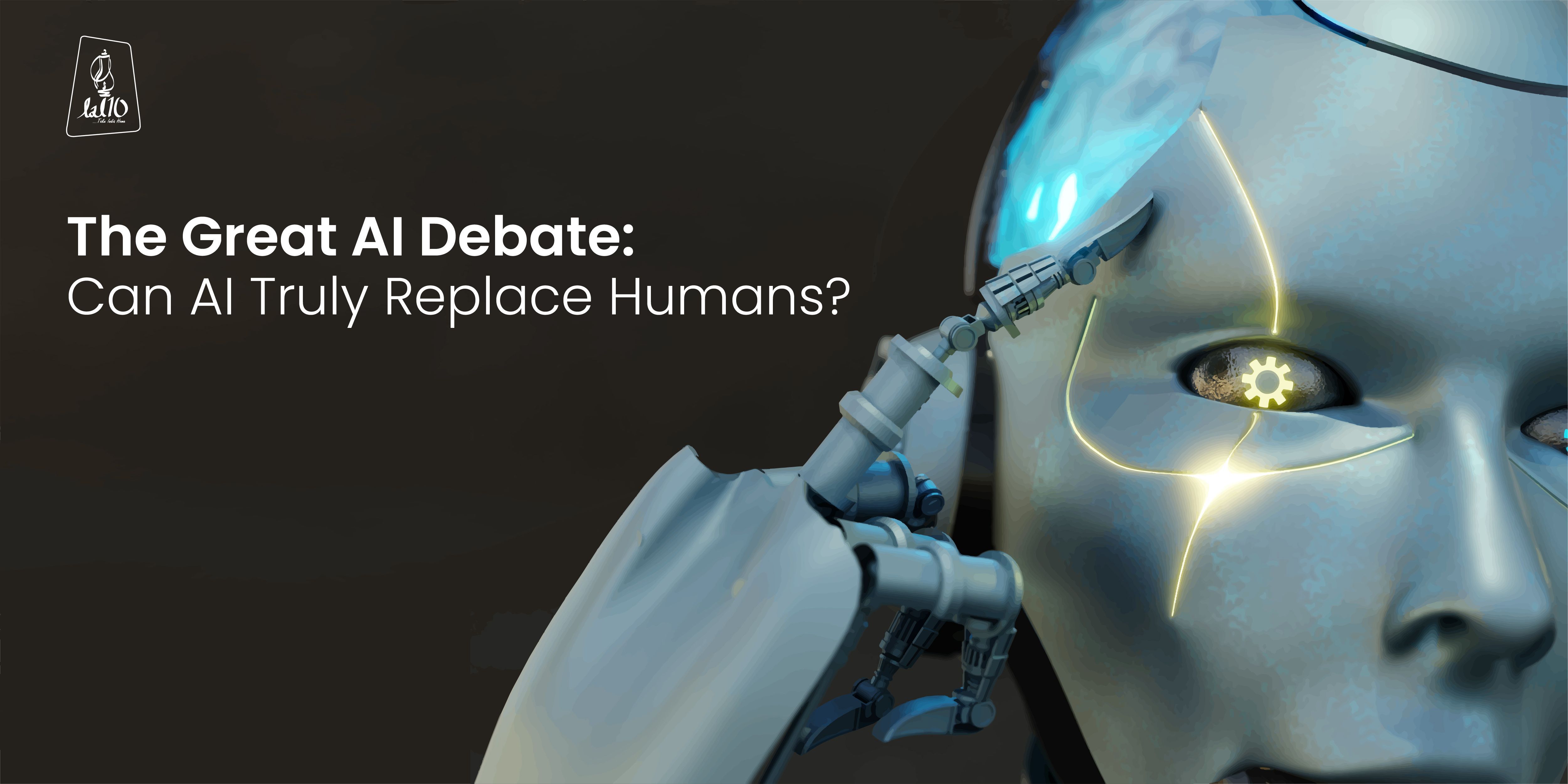The great AI debate: Can AI truly replace humans?

"In the realm of technological advancements, there is a thought-provoking debate that has captured the attention of both experts and enthusiasts alike: AI versus humans. As artificial intelligence continues to evolve at an astonishing pace, it raises profound questions about the future of our society, economy, and even our very existence. Are we on the brink of a revolutionary era where machines surpass human capabilities, or will the intricacies of the human mind always outshine even the most sophisticated AI systems? As algorithms become increasingly proficient at executing tasks traditionally performed by humans, concerns arise regarding job security and the socio-economic impact of widespread AI implementation. AI has revolutionised various industries, from healthcare to finance, enabling faster and more accurate diagnoses and predictions. However, amidst these triumphs, we cannot overlook the undeniable strengths of human intelligence. The human brain is a magnificent, adaptable organ capable of creativity, empathy, and nuanced decision-making that extends beyond the realm of data and logic. Our ability to navigate ambiguous situations, understand emotions, and harness intuition is an integral part of our collective human experience. Lets see, in this dynamic landscape, where will the balance ultimately tip? Will AI serve as a complementary tool, augmenting our capabilities, or will it emerge as a formidable competitor, heralding a new era where humans must redefine their role in a rapidly changing world?
Why can’t AI replace humans in the workspace?
Ai is created by the humans, for the humans, not to replace humans! AI is a powerful tool created by humans to enhance efficiency and focus on more critical tasks. It is not meant to replace humans but rather to automate areas where it can excel. Activities at the human-machine interface often involve training AI models and require unique skills. AI may mimic certain aspects of human thinking, but it still has a long way to go in terms of tactical, problem-solving, and adaptive thinking. The training of AI algorithms demands a significant human workforce, which will continue to grow. By harnessing the capabilities of AI, we can streamline processes, eliminate redundant tasks, and unlock new opportunities for human innovation and growth.
Lack of emotional intelligence:
Emotional intelligence is a crucial factor in the workplace, particularly when dealing with clients. Humans have an inherent need for emotional connection, which AI lacks, making humans indispensable in building relationships and understanding complex emotions while dealing with colleagues and clients.
Limited to inputted data:
AI can only operate based on the data it receives. It cannot handle unforeseen circumstances or new areas of work not included in its algorithms. Human reasoning and the ability to analyze, create, improvise, and gather information cannot be easily replicated by AI.
Restricted creative process:
AI's creative capabilities are confined to the data it receives, limiting its ability to think up new ways, styles, or patterns of work. Creativity and innovation require thinking outside the box, which AI is not capable of, unlike humans who can generate new ideas and solutions even with limited data. Not to forget AI itself is also an innovation created by humans!
Absence of soft skills:
Soft skills, such as teamwork, critical thinking, effective communication, and interpersonal skills, are essential in the workplace. AI lacks the ability to develop these skills that are crucial for professional growth and workplace success.
Humans drive AI:
AI is a product of human intelligence. Humans design, develop, operate, and maintain AI systems. As AI continues to evolve, human involvement and services will be essential, debunking the idea of AI overriding humans in the workspace. Humans make AI work!
Complementary, not competitive:
AI is designed to complement human abilities and intelligence, not replace them. While AI may replace repetitive tasks, it creates new roles and opportunities for humans. Collaborating with AI enables higher productivity and innovation in a more integrated tech landscape. Ai is here to augment human intelligence, not replace it!
Need for fact-checking:
AI, including chatbots, often requires fact-checking by humans. AI can learn quickly but lacks common sense and the ability to reason and contest facts to the extent humans can. Human oversight remains crucial to ensure accuracy and reliability.
AI and human intelligence: A powerful partnership
AI cannot replace humans but people using AI can! It's not AI versus humans; it's AI and humans working together."
